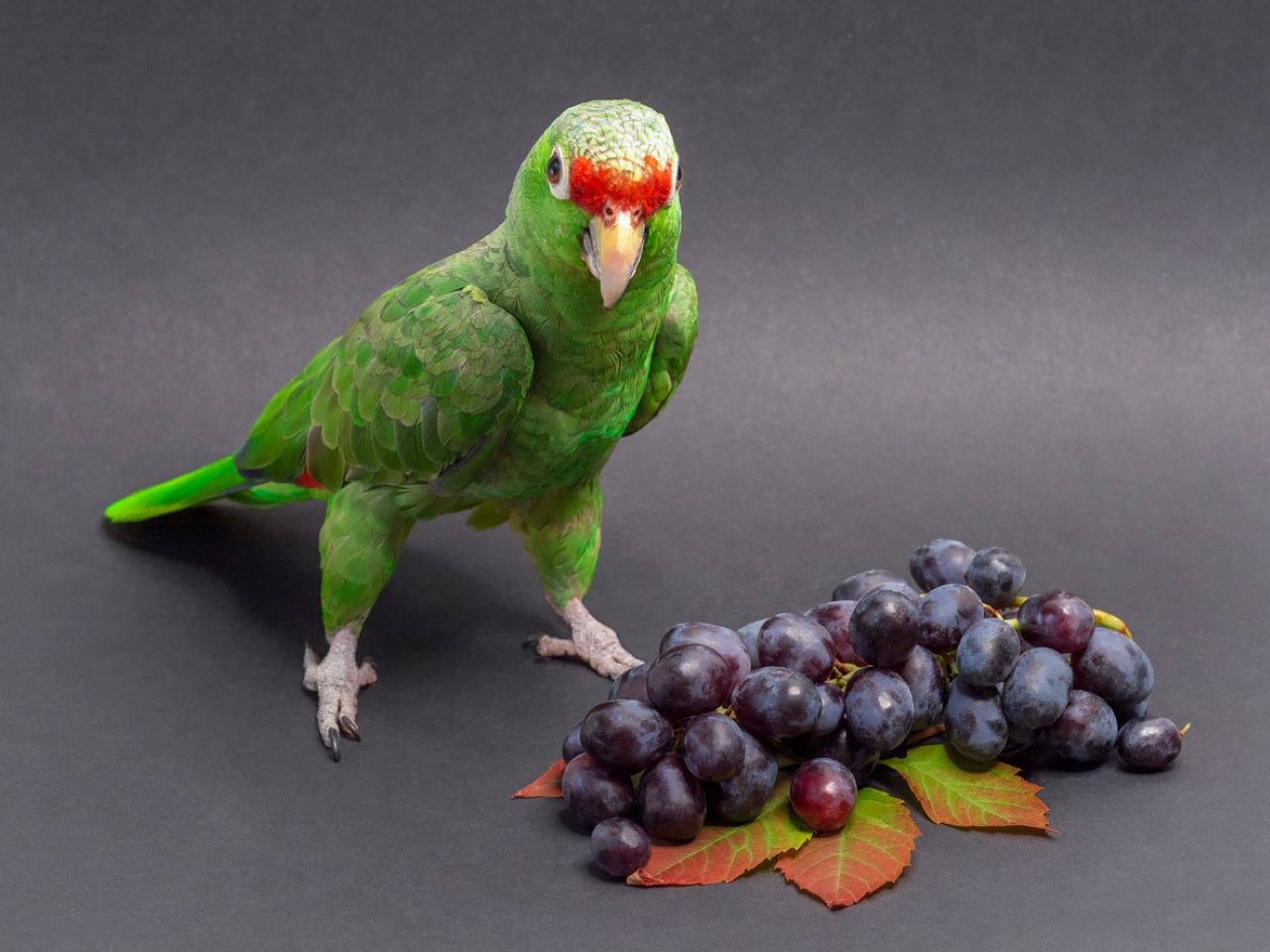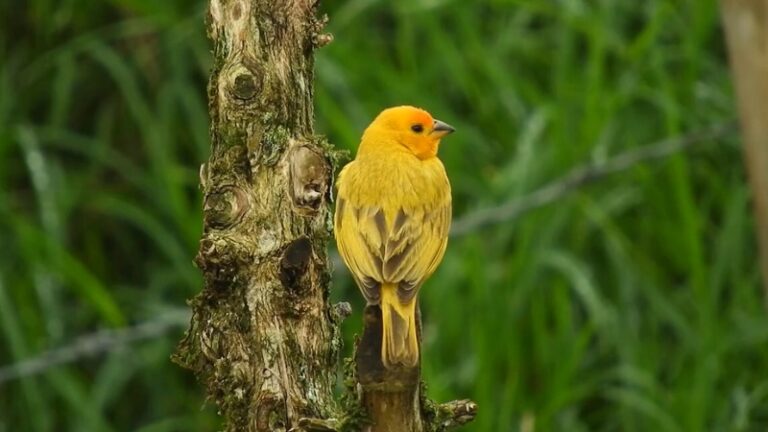Can Parrots Eat Grapes
Yes, parrots can eat grapes, but they should be given in moderation due to their high sugar content. Grape seeds should be removed as they can be toxic to birds.
Parrots are known for their vibrant colors and playful behavior. They make wonderful pets and are often a source of joy and companionship for their owners. However, when it comes to their diet, it’s important to consider what foods are safe for them to consume.
One common question that arises is whether parrots can eat grapes. The answer is yes, parrots can eat grapes. Grapes are a good source of hydration and contain essential vitamins and minerals. They are also a great way to provide variety in a parrot’s diet. However, it’s important to remember that grapes should be given to parrots in moderation. This is because grapes are high in sugar, which can lead to weight gain and other health issues if consumed in excess. Furthermore, it’s crucial to remove the seeds from grapes before feeding them to a parrot. Grape seeds contain toxins that can be harmful to birds if ingested. By removing the seeds, you can ensure your parrot’s safety and overall well-being. While parrots can enjoy the occasional grape as a treat, it’s important to moderate their intake and remove any seeds. By doing so, you can keep your feathered friend happy, healthy, and content.

Credit: beakcraze.com
Health Benefits Of Grapes For Parrots
Grapes offer several health benefits for parrots, as they are rich in vitamins and antioxidants that support their immune system, promote healthy digestion, and improve overall well-being. However, it is important to feed grapes in moderation to prevent potential health risks.
Nutritional Value Of Grapes For Parrots
Grapes, small and juicy berries, are not only a delightful snack for humans but also a potential treat for parrots. These sweet and tangy fruits are known to provide several health benefits to our feathered friends. Let’s explore the nutritional value of grapes for parrots:
- Vitamins and Minerals: Grapes are packed with vitamins and minerals that contribute to the overall well-being of parrots. Some essential nutrients found in grapes include:
- Vitamin C: Boosts the immune system and aids in the absorption of iron.
- Vitamin K: Promotes blood clotting and bone health.
- Vitamin B6: Supports brain function and energy metabolism.
- Potassium: Helps maintain a healthy heart and regulates fluid balance.
- Manganese: Plays a role in bone health and antioxidant defense.
- Antioxidant Properties: Grapes are rich in antioxidants, such as resveratrol and flavonoids. These compounds offer a range of health benefits by reducing oxidative stress and protecting cells from damage. The antioxidant properties of grapes can positively impact parrots in the following ways:
- Anti-inflammatory effects: Grapes can help alleviate inflammation in parrots, potentially aiding in the management of diseases.
- Cardiovascular support: The antioxidants in grapes may promote heart health and reduce the risk of cardiovascular ailments in parrots.
Incorporating grapes into a parrot’s diet can provide a nutritious and flavorful addition while offering various health benefits. Nonetheless, it’s crucial to remember moderation and ensure that grapes are only given as part of a balanced diet. Always consult with a veterinarian before introducing grapes or any new food into your parrot’s diet.
Potential Risks Of Feeding Grapes To Parrots
Feeding grapes to parrots can pose potential risks to their health. These risks include digestive issues and possible kidney damage due to the toxins present in grapes that are toxic to parrots. It is essential to avoid giving grapes to parrots to ensure their well-being and safety.
Grapes are a delicious and healthy snack for us humans, but when it comes to our feathered friends, parrots, we must exercise caution. While some fruits are safe and beneficial for parrots to consume, grapes pose certain risks. Before offering grapes to your pet parrot, it’s important to be aware of the potential dangers associated with this fruit.
Let’s explore them below:
The Toxicity Of Grapes For Parrots:
- Grapes are toxic to parrots and can cause serious health issues if consumed in large quantities. The specific compound in grapes responsible for the toxicity is still unknown, but it’s best to avoid them altogether.
- Even small amounts of grapes can potentially harm parrots, leading to symptoms such as vomiting, diarrhea, and lethargy. In severe cases, it can even lead to kidney failure, which can be life-threatening for our avian companions.
- It’s crucial to note that different parrot species can have varying levels of sensitivity to grape toxicity. Some may be more resilient, but it’s better to err on the side of caution and avoid feeding them grapes altogether.
Choking Hazards Of Grape Seeds:
- One lesser-known danger associated with feeding grapes to parrots is the presence of seeds. Grape seeds are small and round, posing a choking hazard to parrots.
- If a parrot accidentally ingests a grape seed, it can get stuck in their throat or digestive system, causing discomfort and potential choking. This can be a life-threatening situation that requires immediate veterinary intervention.
- To prevent this risk, always ensure that grapes given to parrots are seedless. If you’re unsure about the seed content, it’s safer to remove all seeds before offering the fruit to your feathered friend.
Sugar Content In Grapes:
- Grapes are known to be high in natural sugars, primarily fructose, which can be problematic for parrots’ health.
- A diet high in sugar can lead to obesity, diabetes, and other related health issues in parrots. These conditions can significantly decrease the lifespan and overall well-being of our avian companions.
- While the occasional small bite of grape may not cause immediate harm, it’s crucial to monitor the sugar intake of your parrot and ensure they have a well-balanced diet comprising a variety of fruits, vegetables, and pellets.
It’s best to avoid feeding grapes to parrots due to their potential toxicity, choking hazards associated with seeds, and high sugar content. Always prioritize your parrot’s well-being and consult with an avian veterinarian for guidance on providing a safe and nutritious diet.
Remember, there are plenty of other safe fruits and vegetables that can be enjoyed by our feathered companions.
Safe Consumption Of Grapes For Parrots
Parrots enjoy eating grapes as a tasty treat, but it’s important to ensure their safety. Remove seeds and wash thoroughly to prevent any potential health issues for your feathered friend.
Parrots are delightful and colorful creatures that bring joy to many pet owners. If you have a parrot, you are likely to want to share some of your favorite fruits with them. But can parrots eat grapes? Let’s delve into the safe consumption of grapes for parrots and find out how to provide this tasty treat to your feathered friend.
Moderation And Portion Control
When it comes to feeding grapes to your parrot, moderation is key. While grapes can be a healthy and nutritious snack, they should be given in moderation to avoid any potential health issues. It is important to note that grapes are high in natural sugars, so overindulgence can lead to weight gain and adverse effects on your parrot’s health.
Here are some important points to consider:
- Offer grapes as an occasional treat rather than a staple food in your parrot’s diet.
- Limit the amount of grapes you feed your parrot to prevent excessive sugar intake.
- Always monitor your parrot’s weight and behavior to ensure they are maintaining a healthy balance.
Preparing Grapes For Parrots
Before feeding grapes to your parrot, it is crucial to prepare them properly to ensure safety and maximum enjoyment for your feathered friend. Here’s how to do it:
- Always wash grapes thoroughly to remove any pesticides or dirt.
- Cut grapes into smaller pieces to prevent choking hazards. Be mindful of the size, ensuring they are bite-sized for your parrot.
- Remove any seeds from the grapes, as they can be a choking hazard or contain toxins that are harmful to parrots.
Remember, it is essential to provide fresh grapes and remove any uneaten portions promptly to maintain cleanliness and prevent bacterial growth.
Alternative Fruits For Parrots
While grapes can be a tasty treat for your parrot, it’s always good to have a variety in their diet. Here are some alternative fruits you can offer your parrot as a healthy and delicious snack:
- Apples: Slice them into small, manageable pieces, removing any seeds or core.
- Berries: Blueberries, strawberries, and raspberries are packed with antioxidants and can be served whole or halved.
- Bananas: This tropical delight is a favorite among many parrots, but remember to offer in moderation due to its high sugar content.
- Oranges: Rich in Vitamin C, oranges can be peeled and cut into smaller segments for your parrot to enjoy.
Offering a range of fruits ensures a balanced and varied diet for your parrot, promoting their overall health and well-being.
Remember, always consult with a veterinarian or avian specialist to ensure you are providing the best diet for your parrot, taking into consideration their specific needs and any dietary restrictions they may have.
Now that you have a better understanding of the safe consumption of grapes for parrots and some alternative fruit options, you can enjoy sharing these delectable treats with your feathered companion. Just remember to keep moderation and portion control in mind to keep your parrot healthy and happy.
Frequently Asked Questions On Can Parrots Eat Grapes
Can Parrots Have Green Grapes?
Yes, parrots can have green grapes as part of their diet.
Are Grapes Safe For Birds?
Yes, grapes are safe for birds.
Can African Grey Parrots Eat Grapes?
Yes, African GREY parrots can eat grapes. They enjoy the taste and it is safe for them to consume.
Are Grape Seeds Safe For Birds?
Yes, grape seeds are safe for birds.
Conclusion
Grapes can be a delicious and nutritious treat for parrots, but only when fed in moderation. While they are rich in vitamins and antioxidants, their high sugar content can lead to health issues if not regulated. It is important to remember that each parrot is unique, and what works for one may not work for another.
Always consult with a veterinarian or avian specialist before introducing any new foods into your parrot’s diet. As a responsible parrot owner, it is crucial to provide a balanced diet that includes a variety of fruits, vegetables, and pellets. Monitoring your parrot’s behavior and overall health is key to ensuring they are thriving and living their best life.
So, go ahead and share a few grapes with your parrot as an occasional treat, making sure to enjoy these moments together while keeping their well-being in mind.


